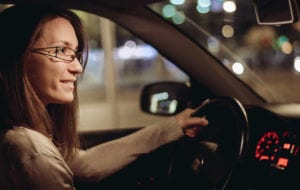
After Laser Eye Surgery
Most laser eye procedures are quick, taking an hour or less from start to finish, including anesthetizing the eyes. Because eye surgery may involve dilation, and disrupts the membranes of the eye (for the greater good), patients’ vision may be blurry immediately following their procedure. The eye or eyes may also be covered with gauze or a soft patch to prevent debris from getting into a vulnerable area. For these reasons, it is necessary for transportation to be arranged before the day of surgery.
Driving cannot legally resume until a follow-up eye exam has been performed after laser eye surgery. Because the eyes tend to heal quickly, this follow-up appointment is usually scheduled one day after surgery. Until this exam has taken place and Dr. Croley has confirmed your vision is good enough for you to drive safely, you will need to have someone available to transport you to and from your appointments. One of the reasons why laser eye surgery is so advantageous is because the time needed for recovery is minimal. You may be able to resume driving within a few days or, if needed, within about a week.
A Word of Caution
One of the details of laser eye surgery that needs to be understood is that halos or glares may appear around lights after treatment. Usually, these slight visual distortions are only a temporary nuisance. The presence of halos and glares shouldn’t keep you from driving, but they may be something to get used to. As the eyes continue to heal after laser surgery, driving in all levels of light should become more comfortable. Until then, you may want to be a passenger at night instead of the driver.
Would you like to see what laser eye surgery can do for you? Call our Ocala office at (352) 237-8400.
